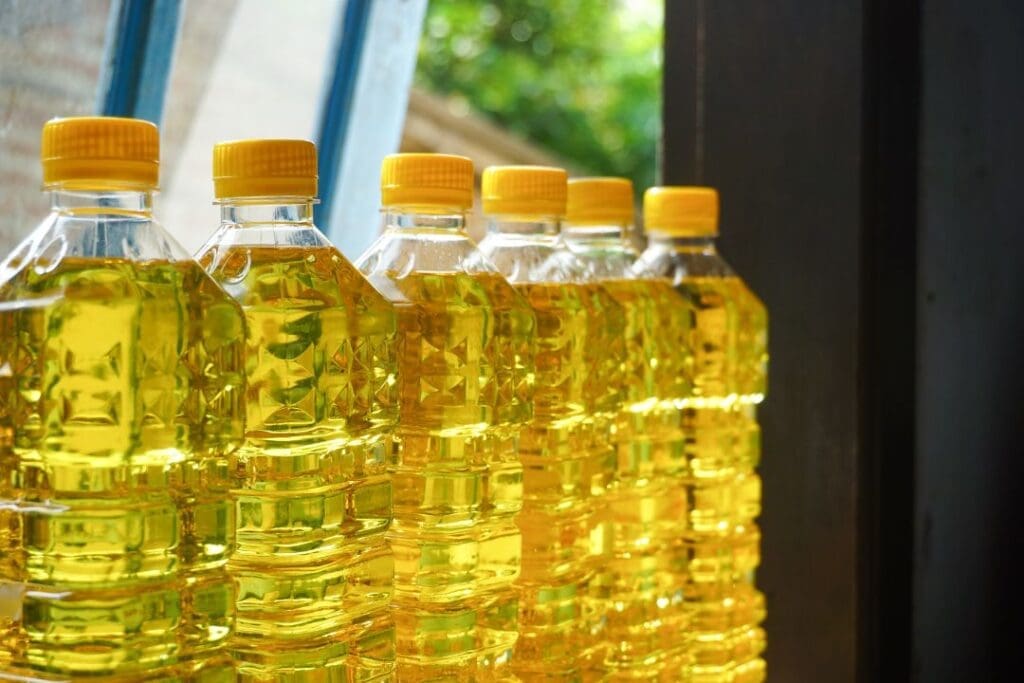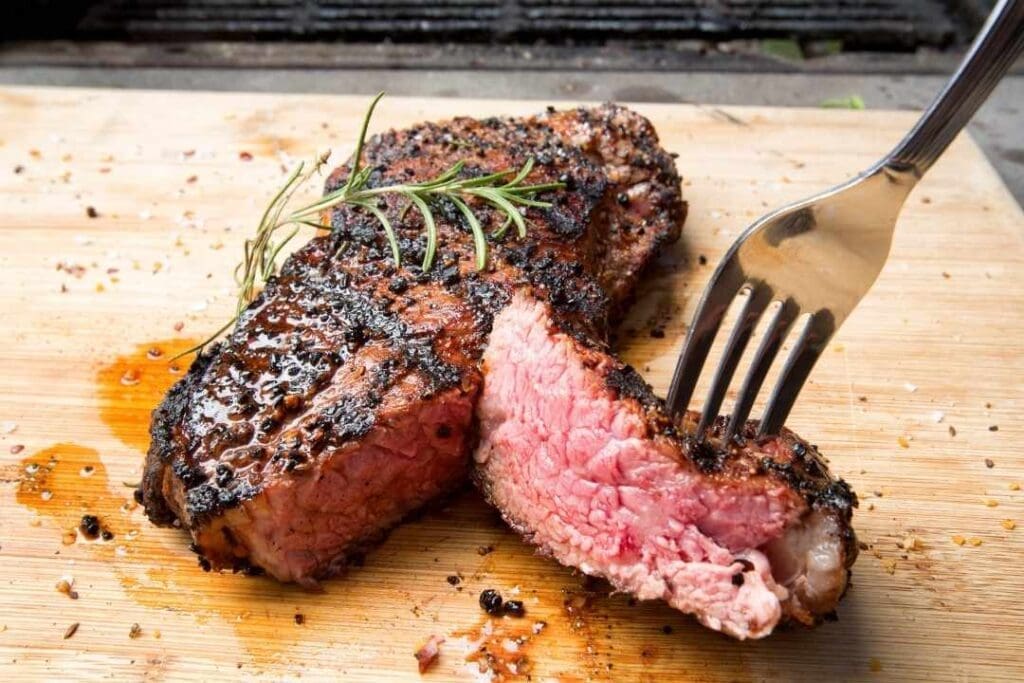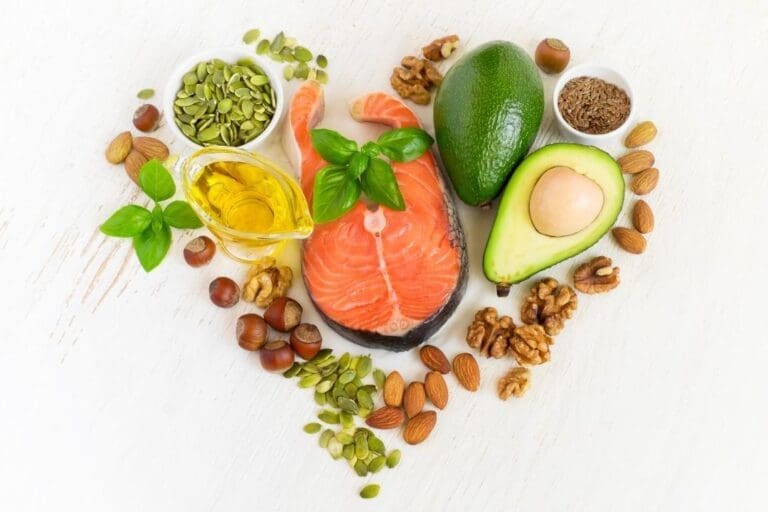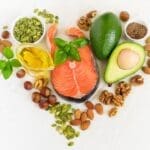The Fat Phobia Myth
The fear of fat started decades ago, fueled by outdated studies and misleading food industry marketing. As a result, low-fat products filled grocery store shelves, often replacing fat with sugar and artificial ingredients. Instead of improving health, this shift contributed to rising obesity, metabolic disorders, and chronic disease. Today, we know that dietary fat is essential, and avoiding it can do more harm than good.
How Your Body Actually Uses Fat
Fat is one of the three essential macronutrients, alongside protein and carbohydrates. Your body needs it for:
- Energy: When carbs aren’t available, your body burns fat for fuel.
- Hormone Production: Fats are crucial for making hormones like estrogen, testosterone, and cortisol.
- Brain Function: About 60% of your brain is fat. Healthy fats support cognitive function and mood stability.
- Cell Structure: Every single cell in your body has a membrane made of fat.
If fat were bad for you, your body wouldn’t rely on it so much for survival.
What Really Causes Weight Gain?
Weight gain isn’t about eating fat—it’s about metabolic dysfunction. The biggest contributors to excess fat storage are:
1. Processed Carbohydrates & Sugar
When you eat refined carbs (like white bread, pasta, and sugar), your blood sugar spikes. Your body releases insulin to bring blood sugar down, but insulin is also a fat-storing hormone. Over time, frequent insulin spikes lead to insulin resistance, where your body stores more fat and burns less of it.
2. Industrial Seed Oils
Seed oils like soybean, canola, and corn oil are highly processed and inflammatory. They contain high levels of omega-6 fatty acids, which can throw off your body’s natural balance and contribute to metabolic dysfunction. Replacing seed oils with animal fats like tallow supports better health and metabolism. (Try this grass-fed tallow for a high-quality option.)
3. Chronic Calorie Surpluses
While calorie intake matters, hormones and food quality play a bigger role in weight gain. If you’re eating foods that spike insulin frequently, your body will store fat regardless of your overall calorie intake.
The Role of Insulin Resistance & Fat Storage
Insulin resistance occurs when cells stop responding properly to insulin, leading to high blood sugar and increased fat storage. This condition is driven by excessive carbohydrate intake, processed foods, and lack of metabolic flexibility. Eating a diet rich in healthy fats can help stabilize blood sugar and support proper insulin function.
The Best Fats for a Healthy Diet
When selecting fats, aim for those that are minimally processed, naturally derived, and packed with beneficial nutrients. High-quality fats not only supply enduring energy but also bolster brain function and support overall well-being.
Animal Fats
- Tallow:
Perfect for high-heat cooking and frying, tallow is rich in fat-soluble vitamins. Look for organic, grass-fed options to benefit from its natural purity—ideal for both cooking and skincare. - Lard:
Traditional yet versatile, lard is an excellent source of monounsaturated fats, lending both flavor and nutritional value to your favorite recipes. - Duck Fat:
Known for its distinctive taste and richness, duck fat enhances the flavor profile of dishes while contributing a healthy dose of beneficial fats.
Plant-Based Oils
- Coconut Oil:
Rich in medium-chain triglycerides (MCTs), coconut oil supports efficient energy production and metabolic function. Its stable saturated fat structure makes it well-suited for high-heat cooking. We love this coconut oil! - Olive Oil:
Loaded with monounsaturated fats and antioxidants, olive oil is celebrated for its heart-healthy properties. Use it in cold applications or for low-heat cooking to maintain its delicate, beneficial compounds. - Avocado Oil:
Another excellent source of monounsaturated fats, avocado oil also delivers a boost of vitamin E. Its mild flavor and high smoke point make it a versatile choice for many culinary applications. Try this one!
Fats to Avoid
For optimal health, steer clear of fats that are overly processed or chemically altered. These fats are often inflammatory and can compromise long-term wellness:
- Vegetable & Seed Oils:
Canola, soybean, corn, sunflower, safflower, and grapeseed oils are high in omega-6 fatty acid content and promote inflammation and disturb the body’s natural fat balance. These highly processed options often contain chemical additives - Margarine & Imitation Butter:
Typically made with hydrogenated seed oils, these substitutes frequently contain trans fats, which are linked to an increased risk of heart disease and metabolic disorders.
You can learn about seed oils here: The Hidden Dangers of Vegetable and Seed Oils

Foods & the Fats They Contain
Getting good fats doesn’t mean just adding butter to everything (though that’s not a bad idea). Many whole foods naturally contain beneficial fats that support brain function, energy levels, and overall health. Here are some of the best foods to include:
Animal-Based Sources
- Egg Yolks – Loaded with healthy fats and choline, which is great for brain health.
- Salmon, Shrimp, & Sardines – Packed with omega-3s to support heart health and reduce inflammation.
- Grass-Fed Beef – A solid source of saturated and monounsaturated fats, plus CLA, which may help with metabolism.
- Raw Dairy (Butter, Cheese, Cream) – Full of fat-soluble vitamins like A, D, E, and K, plus that creamy, rich taste.
- Pork (Bacon, Pork Belly) – Naturally high in monounsaturated fats and full of flavor.
Plant-Based Sources
- Avocados – Loaded with monounsaturated fats and vitamin E to support healthy skin and heart health.
- Macadamia Nuts – One of the least inflammatory nuts, with lots of good fats to keep you full.
- Coconut & Coconut Products – High in MCTs, which help with energy and metabolism.
- Olives – A great source of monounsaturated fats and antioxidants, perfect for snacking or adding to meals.
Calories Matter, But Not Equally
While calories influence weight, they are not the sole factor. Hormones, nutrient density, and satiety levels determine how your body processes food. Fats keep you full longer, reduce cravings, and prevent blood sugar crashes, which makes them superior for long-term weight management compared to refined carbohydrates.
Metabolic Adaptation & Why Low-Fat Diets Fail
Long-term low-fat diets can slow metabolism, leading to fatigue, hormone imbalances, and difficulty losing weight. Reintroducing healthy fats helps restore metabolic function, optimize hormone production, and improve energy levels.

Sample Nutrient-Dense Meal Plan
A simple way to incorporate more quality fats into your diet:
- Breakfast: Scrambled eggs cooked in tallow with bacon and a side of raw cheese
- Lunch: A cup of grass-fed bone broth, and a beef burger (no bun) cooked in butter with a side of sautéed vegetables
- Dinner: Ribeye steak cooked in tallow with roasted root vegetables
- Snack: Hard-boiled eggs with a sprinkle of sea salt
Debunking Common Myths About Fat & Cholesterol
“Fat Clogs Your Arteries” – False
The idea that eating fat leads to clogged arteries comes from outdated studies that misunderstood cholesterol’s role. New research shows that dietary fat does not cause heart disease—inflammation and sugar are the real culprits. In fact, natural fats like those found in grass-fed meats, butter, and eggs can actually support heart health by providing essential nutrients and helping to balance cholesterol levels. Processed seed oils and trans fats, on the other hand, are the real fats to avoid, as they contribute to inflammation and oxidative stress.
“Eating Fat Will Make You Gain Weight” – False
Fat is actually more satiating than carbs, meaning it keeps you full longer, reduces cravings, and helps regulate blood sugar. When you eat enough high-quality fats, you’re less likely to overeat or reach for snacks loaded with sugar and processed carbs. Weight gain happens when you consume too many calories—especially from refined carbs, sugar, and ultra-processed foods—not from natural fats like butter, tallow, or avocado oil. Plus, fat plays a crucial role in metabolism and hormone regulation, both of which influence weight management.
“You Need to Eat Low-Fat to Be Healthy” – False
Fat-soluble vitamins like A, D, E, and K require fat to be absorbed, making dietary fat essential for proper nutrition. Cutting fat from your diet can lead to deficiencies, weak immune function, poor skin health, and hormone imbalances. Many low-fat and fat-free products compensate by adding sugar and artificial ingredients, which are far worse for your health. Instead of avoiding fat, focus on eating the right kinds—like grass-fed butter, coconut oil, and animal fats—to support everything from brain function to hormone production.
Eat Fat, Burn Fat
When you eat the right fats, your body becomes more efficient at burning fat for fuel. Instead of fearing fat, embrace it—but make sure you’re choosing real, high-quality fats over industrialized oils and processed junk.
If you’re looking for a great source of animal fats, this grass-fed tallow is a high-quality option.













